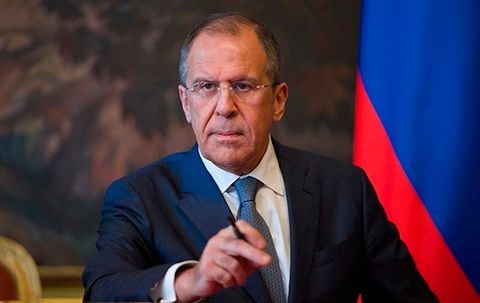New tensions in relations between Russia and the Nordic countries
(Baonghean) - The Russian Foreign Ministry said on April 12 that moves by Finland and Sweden toward closer ties with the North Atlantic Treaty Organization (NATO) were of particular concern. In the context of the relationship between Russia and NATO still at a low point related to the Ukraine crisis, this development has once again heated up the political atmosphere in Europe.
 |
| Russian Foreign Minister Sergei Lavrov. Photo: AP |
The move is Russia's latest response to a joint statement by the Norwegian media in which the defense ministers of Sweden, Norway, Finland, Denmark and Iceland said that Northern Europe needs to be prepared to deal with potential crises or incidents originating from Russia. The Nordic leaders said that these countries must be ready to deal with the risk of a possible crisis, with military cooperation between the Nordic countries including joint exercises, intelligence sharing and increased cooperation in the defense industry.
Of the five Nordic countries that have recently expressed their views, only three, Norway, Denmark and Iceland, are NATO members. Sweden and Finland have been known as Western countries with neutral views for many years. These two countries have also repeatedly refused to join NATO because of their special relationship with the former Soviet Union and the current Russian Federation. Therefore, the recent move has made Russia worried that Sweden and Finland are getting closer to NATO, and it is not even possible that these two countries could soon be drawn into joining this military alliance.
Historically, the relationship between Russia and the Nordic countries has seen many ups and downs. However, over the decades since World War II, the former Soviet Union and the Russian Federation today have repeatedly made clear their stance of not wanting neighboring countries that share borders to join NATO. Meanwhile, Sweden and Finland, although not having a close relationship with Russia, have never had a confrontation with Russia in many years since World War II. Not to mention, the economic relationship between Russia and Sweden and Finland is very close. In 2013, Finland alone exported goods worth nearly 8 billion USD to Russia.
In fact, Finland has more than 1,300km of common border with Russia. If it participates in defense or joint exercises with NATO, NATO troops will certainly be present "closer" to Russia. As for Sweden, the country that owns the longest coastline among the countries around the Baltic Sea, the combined territorial waters of Sweden and Finland almost completely cover this sea. Therefore, if these two countries have links with NATO, NATO ships will freely travel in the Baltic Sea, creating pressure on the Russian Navy's Baltic fleet and approaching the important city of Saint Petersburg. Therefore, the Russians have reason to show "special concern" when Sweden and Finland, along with three other NATO members in the Nordic region, Norway, Iceland, and Denmark, discussed measures to respond to Russia.
Today, Finns remain opposed to joining NATO for fear of angering Russia, with polls following Russia’s annexation of Crimea showing that less than a quarter of Finns support NATO membership. As a result, no political party in Finland has publicly supported it. Similarly, more people in Sweden oppose NATO than support it. In a recent poll, only 31% of Swedes supported NATO membership, while 50% opposed it.
Although it is unlikely that Sweden and Finland will join NATO in the near future, both countries are members of the European Union and participate in NATO's "Partnership for Peace" program, and this latest move could lead to joint exercises with NATO. Therefore, there has been a "new wind" in the neutral stance of these two Baltic countries. In the context of low Russia-NATO relations, the fact that the Nordic countries consider Russia a threat could change the situation in the Nordic region. Certainly, if the Nordic countries expand their deployment of forces to deal with Russia, especially if Sweden and Finland join NATO more strongly, it is not impossible that Russia will also increase its deployment of armed forces in the border areas with Northern Europe to deal with it. And thus, trust between Russia and these Nordic countries may be pushed away, from which new tensions will appear, affecting the stable peaceful environment in one of the most developed regions in the world.
Nguyen Cao Bien
| RELATED NEWS |
|---|
